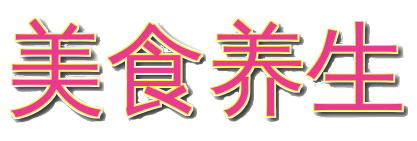英文版端午节习俗The Dragon Boat Festival, also known as the Dragon Boat Festival, the May Festival and the Fifth Festival, is the fifth day of the fifth month of the lunar calendar every year. It is a traditional Chinese festival. What are the customs of the Dragon Boat Festival?端午节,又称端午节、五月节和第五节,是每年农历第五个月的第五天。这是中国的传统节日。端午节的习俗是什么呢?It is another traditional custom of the Chinese people to eat Zongzi on the Dragon Boat Festival. Zongzi is also called "Corn Millet" and "Tube Zongzi". It has a long history and various patterns. On the morning of the Dragon Boat Festival, the family eats zongzi to commemorate Quyuan. Generally, the zongzi was wrapped the day before, cooked at night and eaten in the morning.端午节吃粽子是中国人的另一个传统习俗。粽子又称“谷子”和“管粽子”。历史悠久,样式多样。端午节的早上,家人吃粽子来纪念屈原。
一般来说,粽子前一天包好,晚上煮熟,早上吃。Dragon boat racing is the main custom of Dragon Boat Festival. Legend has it that the Chu people died because they couldn't bear to throw their virtuous courtier Quyuan into the river. Many people rowed boats to catch up with the rescue. 赛龙舟是端午节的主要习俗。传说楚国人死了,因为他们不忍把他们贤惠的朝臣屈原扔进河里。许多人划着船赶来救援。They scrambled to catch up with Dongting Lake and disappeared. After that, dragon boats were rowed on May 5th every year to commemorate it. Dragon boats are used to disperse the fish in the river so as not to eat Qu Yuan's body. Competition is prevalent in Wu, Yue and Chu.他们争相赶上洞庭湖,消失了。此后,每年5月5日都会有龙舟划行以纪念它。
龙舟是用来驱散江中的鱼,以免吃屈原的尸体。关于一篇端午节的英语作文英语:Dragon Boat Festival, often known as Tuen Ng Festival or Duan Wu Festival, is a traditional Chinese festival held on the fifth day of the fifth month of the Chinese calendar. It is also known as the Double Fifth.[citation needed] It has since been celebrated, in various ways, in other parts of East Asia as well, most notably Korea. The exact origins of Duan Wu are unclear, but one traditional view holds that the festival memorializes the Chinese poet Qu Yuan of the Warring States Period. He committed suicide by drowning himself in a river because he was disgusted by the corruption of the Chu government. The local people, knowing him to be a good man, decided to throw food into the river to feed the fishes to prevent them from eating Qu's body. They also sat on dragon boats, and tried to scare the fishes away by the thundering sound of drums aboard the boat and the fierce looking dragon-head in the front of the boat. In the early years of the Chinese Republic, Duan Wu was also celebrated as "Poets' Day", due to Qu Yuan's status as China's first poet of personal renown. Today, people eat zongzi (the food originally intended to feed the fishes) and race dragon boats in memory of Qu's dramatic death. 中文:龙舟节,端午节经常或端午节,是一种传统的中国节日对中华历5月5日举行。它也被称为端五。[来源请求]它已经被庆祝,以各种方式在其他地区以及东亚,尤其是韩国。端午确切的起源尚不清楚,但一种传统的观点认为,节日来源在中国诗人屈原的战国时期。他犯的河中溺死自己,因为他是由政府的腐败深恶痛绝楚自杀。当地群众,知道他是一个好人,决定投身到河里的鱼的食物,饲料,以防止吃屈原的尸体他们。他们还坐在龙舟,并试图吓唬由船上和激烈的寻找龙在船头头战鼓齐鸣声中的鱼了。
在中国民国初年,段坞也被“诗人节“庆祝,由于屈原作为中国的第一个著名的诗人的个人地位。今天,人们吃粽子的曲的戏剧性死亡内存和龙舟比赛(原本打算饲料鱼类的食物)。介绍中国民间的传统的节日-端午节的英语作文
The Duanwu Festival (Chinese: 端午节), also known as Dragon Boat Festival, is a traditional and statutory holiday associated with Chinese cultures, though it is celebrated in other East Asian and Southeast Asian societies as well. It is a public holiday in Taiwan, where it is known by the Mandarin name Duānwǔ Jié, as well as in Hong Kong and Macau, where it is known by the Cantonese name Tuen Ng Jit. In 2008, the festival was restored in China as an official national holiday. The festival is also celebrated in countries with significant Chinese populations, such as in Singapore and Malaysia. Equivalent and related festivals outside Chinese-speaking societies include the Kodomo no hi in Japan, Dano in Korea, and T?t ?oan Ng? in Vietnam.
The festival occurs on the fifth day of the fifth month of the lunar calendar on which the Chinese calendar is based. This is the source of the alternative name of Double Fifth. In 2009 this falls on May 28 and in 2010 on June 16. The focus of the celebrations includes eating zongzi, which are large rice wraps, drinking realgar wine, and racing dragon boats.
In May 2009, the Chinese government nominated the festival for inclusion in UNESCO's global "Intangible Cultural Heritage" list,[4] partly in response to South Korea's successful nomination of the Dano festival in 2005 which China criticised as "cultural robbery".
粽子英文怎么说zongzi一、读音:英 [z???'z?]美 [z???'z?] 二、意思是:粽子; 端午节时的一种食物三、例句:Some people like the zongzi with meat in it.还有人喜欢包肉馅的粽子。We usually eat Zongzi on the Dragon Boat Festival.端午节我们通常吃粽子。扩展资料词汇辨析:粽子的英文,很多人最先想到的一定是“Zongzi”,这当然是对的,也是最常用的,粽子本来就是中国特有的食品之一,在外国没有对应的英文来表达,用拼音肯定是最适合不过的了。它们对“Zongzi”的标准英文翻译居然是:rice dumplings or sticky rice dumplings。即:In the Western world, they are also known as rice dumplings or sticky rice dumplings.在西方,粽子也被称为“rice dumplings”或“sticky rice dumplings”。关于端午节的英语作文加翻译端午节在中国的民间节日中可以算得上隆重,粽子、茶鸡蛋、插艾蒿等都是端午节的特色。小时候过端午节我足足能提前兴奋上一周,因为可以吃上香喷喷的粽子了,那个时候生活比较单调,也很苦,不是过节平常是什么也吃不到的。说起粽子,它不仅好吃,最主要的是在包粽子的过程中,体现着乐趣。每年端午一到,母亲在头一天晚上跑上一盆糯米,第二天早上便是我和母亲一起包,绿绿的粽叶里加上糯米和大枣,包成三棱形的粽子,包好后放在大锅里足足煮上3、4个钟头,之后母亲把粽子泡在备好的两水桶内,凉了以后细细地拨开竹叶,咬上一口白嫩的糯米,紫红的大枣就露出头来,蘸白糖再吃,那时吃起来是那么的香甜可口,耐人回味。端午节前夕,家家把在山上采的艾蒿插在门上,说是为了避邪,我们小孩只是效仿着做,不懂其中的含义。端午节早晨,起床后,母亲在我们的手腕和脚踝上缠上五彩的丝线,今后一直带着,据说可以去病除邪。其实在我心里,这些五彩的丝线在我心里是那些精美手镯的替代品。有些人家也会花些钱给自己的小孩买香荷包带在身上,我的母亲是自己亲手用些小布头做的,里面塞些棉花,放些香草,即便是这样我们也很高兴。回忆儿时过节是快乐的,节日的气氛也比现在浓。
版权声明
本文仅代表作者观点,不代表本站立场。
本文系作者授权发表,未经许可,不得转载。
- 上一篇: 粽子是我们中华民族的传统美食(中国传统美食粽子介绍)
- 下一篇: 粽子模型怎么画(粽子的画法)













发表评论